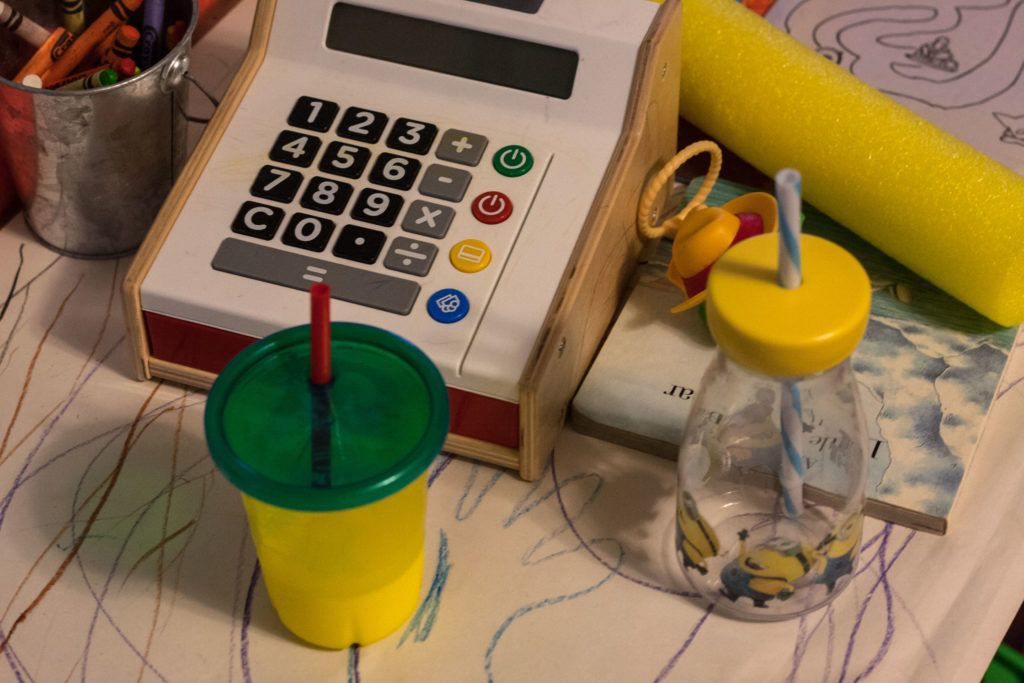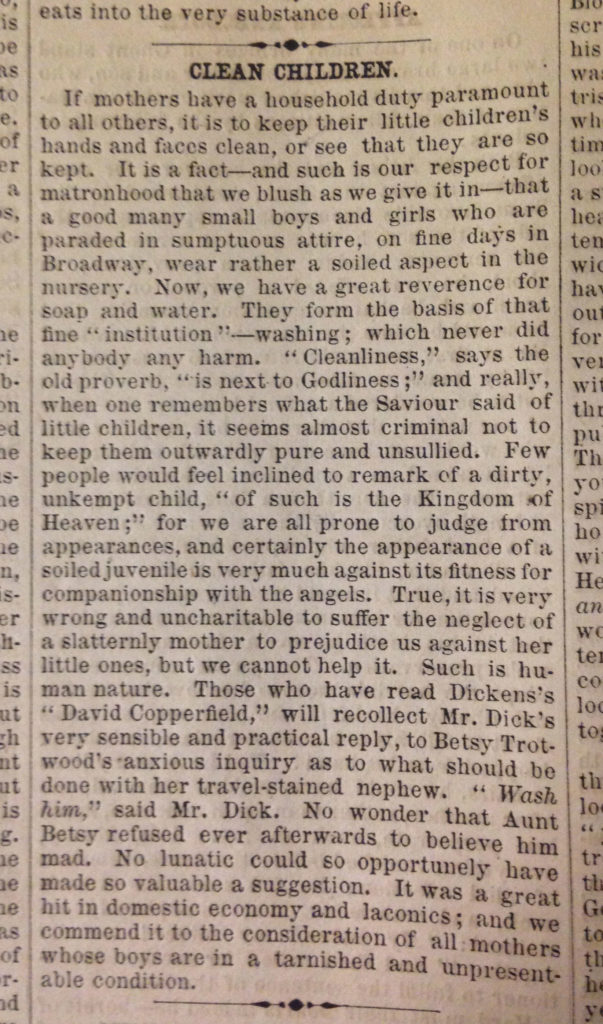Have a drink with: An Anonymous Neat Freak
Not a fan of the cake smash.
Ask him: so how do you feel about nursing in public?
In an evergreen forest of advisories, parenting blogs, media content and pop-sociology books on parenthood it’s easy to suspect that no era outside of our own has ever been so laser-focused on how we mold our children, and even easier to feel nostalgic for a time in which maybe, just maybe, people kept unsolicited parenting advice to themselves.
But lest you think the past was a freer, bygone era, take one (presumably male) 19th-century New York journalist, who if he even had kids was at least very lucky his wife, children and no doubt ample domestic staff did not one morning decide to lace his oatmeal with strychnine.
Because if you believe the July 2, 1859 issue of the New York Ledger, children should apparently not only be neither seen nor heard, but little walking Swiffer pads for Jesus. Mothers, take note:
“…and really, when one remembers what the Saviour said of little children, it seems almost criminal not to keep them outwardly pure and unsullied. Few people would feel inclined to remark of a dirty, unkempt child, ‘of such is the Kingdom of Heaven;’ for we are all prone to judge from appearances, and certainly the appearance of a soiled juvenile is very much against its fitness for companionship with the angels.”
Sir, we are all indeed prone to judge from appearances. Want to know what we think of you?
Fun Facts:
As in any era, absolutes don’t work; and when you consider geography and socioeconomics, industrialization, immigration, child labor and more, it’s difficult to make any sweeping statement or generalization about parenting norms or quality of life for children in the 1800’s. While the 19th century was known for the embrace of Victorian purity and decorum, it was also an era in which young Americans were known for their gleeful muddy rebellion. It was the century of Huck Finn and “Mary Ellen” alike.
Sweeping moral initiatives were a big thing in the Victorian era anyway – see also suffrage, temperance, animal rights, the Comstock laws – and while women’s activism was significant, preventative societies in particular (the ones pushing for extrajudicial authority) generally were very male, and necessarily classist and/or racist in their approach to moral reform.
Children’s literature as we know it was arguably born in the 19th century thanks to folks like Randolph Caldecott and John Newbery (they of the shiny award seals you see on great children’s books) – check out this great ALA article.
Additional Reading:
The New York Ledger, July 2, 1859
The Wild Children of Yesteryear is a nice short article about early American “free-range” parenting and the swing towards regimenting youth.
Don’t Think of Ugly People: On eugenics, crying it WAY out, and how we rely on information to establish parenting norms.
Slate looks at Centuries of Childhood and its much-argued contention that the notion of childhood itself is a modern creation.

